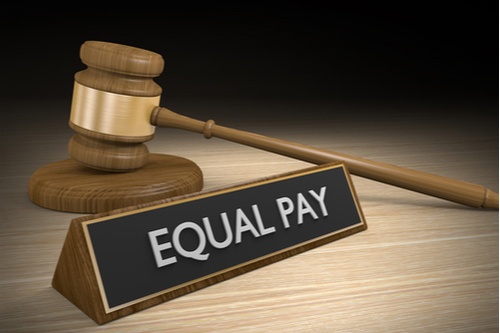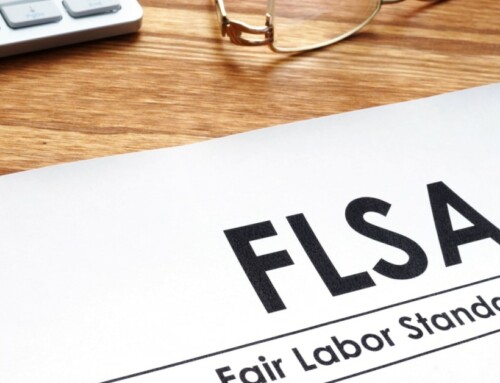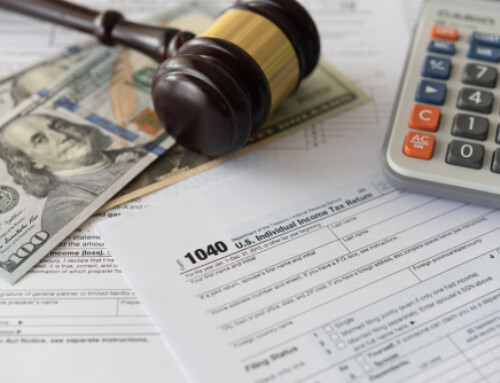When Are Employees Entitled to Equal Pay?
Under the federal Equal Pay Act, employers must compensate men and women equally for equal work. Those that do not provide equal pay can face civil liability in employee litigation, as the Equal Pay Act provides a private right of action to negatively affected employees. Equal pay violations can trigger the anti-discrimination provisions of Title VII of the Civil Rights Act of 1964 as well, and, as a result, employers accused of failing to compensate their male and female employees equally will often find themselves defending against multiple statutory allegations.
But, what does it mean to provide “equal pay”? What constitutes “equal work”? These questions do not have straightforward answers, and this makes understanding employers’ compliance obligations a challenge.
What Constitutes “Equal Pay”?
To understand what is required to provide “equal pay,” it is first necessary to look at the Equal Pay Act’s specific language. In Section 206(d)(1), the law states:
“No employer having employees subject to any provisions of this section shall discriminate, within any establishment in which such employees are employed, between employees based on sex by paying wages to employees in such establishment at a rate less than the rate at which he pays wages to employees of the opposite sex in such establishment . . . .”
As you can see, this does not provide much specificity, but it does establish the fundamental requirement that men and women receive an equal “rate” under relevant circumstances. In the years after the Equal Pay Act’s enactment, court decisions and guidance from the U.S. Equal Employment Opportunity Commission (EEOC) have further clarified what is required.
In the words of the EEOC, “[a]ll forms of pay are covered by [the Equal Pay Act], including salary, overtime pay, bonuses, stock options, profit-sharing, and bonus plans, life insurance, vacation and holiday pay, cleaning or gasoline allowances, hotel accommodations, reimbursement for travel expenses, and benefits.” In short, if an employer provides any compensation or benefit, it must provide this compensation or benefit to men and women on equal terms. This applies to all employees who work at the same “establishment.” While this generally refers to one specific physical location, there are circumstances where employees who work at separate job sites will be considered to work from the same establishment.
What Constitutes “Equal Work”?
Now, what about “equal work”? Section 206(d)(1) goes on to state that equal pay is required when men and women perform “equal work on jobs the performance of which requires equal skill, effort, and responsibility, and which are performed under similar working conditions.” As interpreted by the EEOC, this means that men’s and women’s “jobs need not be identical, but they must be substantially equal.” Additionally, “[j]ob content (not job titles) determines whether jobs are substantially equal.”
The EEOC also provides further guidance on the various factors considered when evaluating whether two positions are equal for the Equal Pay Act’s purposes. For example:
- Skill is measured by factors including the “experience, ability, education, and training required to perform the job.”
- The effort is measured by the “amount of physical or mental exertion needed to perform the job.”
- Responsibility is measured by the “degree of accountability required in performing the job.”
- Working conditions are assessed based on “(1) physical surroundings like temperature, fumes, and ventilation; and (2) hazards.”
Importantly, while the Equal Pay Act generally requires equal pay for equal work, there are exceptions. Even when two employment positions are deemed equal, equal pay is not required if:
- Compensation is determined based on seniority;
- Compensation is determined based on merit;
- The employer utilizes a system that “measures earnings by quantity or quality of production;” or
- Compensation decisions are made based upon other factors other than employees’ sex.
As these exceptions make clear, the Equal Pay Act is an anti-discrimination statute similar to Title VII, the Americans with Disabilities Act (ADA), the Age Discrimination in Employment Act (ADEA), and the various other laws that exist at the federal level. The law is not designed to guarantee equal pay under all circumstances but rather to prohibit disparate treatment of male and female employees based upon their sex alone.
It is worth noting that while South Carolina does not have a law that is analogous to the Equal Pay Act, its general employment discrimination law prohibits sex discrimination, including discrimination in compensation. So, in addition to facing federal claims (which may be brought in state or federal court), employers in South Carolina that are accused of providing unequal pay can face state law claims as well.
What Liability Exposure Can Employers Face in Equal Pay Act Lawsuits?
As we mentioned in the introduction, the Equal Pay Act provides employees with a private right to sue their employers for wage discrimination. In the Equal Pay Act litigation, employers can face liability for twice the improperly unpaid wages. Section 216(b) of the law states:
“Any employer who violates the [Equal Pay Act] shall be liable to the employee or employees affected in the amount of their unpaid minimum wages, or their unpaid overtime compensation, as the case may be, and in an additional equal amount as liquidated damages.”
In addition to the Equal Pay Act’s private-right-of-action provisions, the law also provides civil enforcement (with fines of $1,100 per violation) in cases involving repeated or willful violations. The EEOC handles civil enforcement matters and are often triggered by complaints from current and former employees.
Contact Our Columbia, South Carolina Employer Defense Lawyers at Gignilliat, Savitz & Bettis, LLP
Gignilliat, Savitz & Bettis, LLP is a South Carolina employment law firm that exclusively represents employers. If you have questions about your company’s obligation under the Equal Pay Act or face allegations of wage discrimination, we encourage you to get in touch. Call 803-799-9311 or contact us online to speak with one of our South Carolina employment lawyers in confidence.






